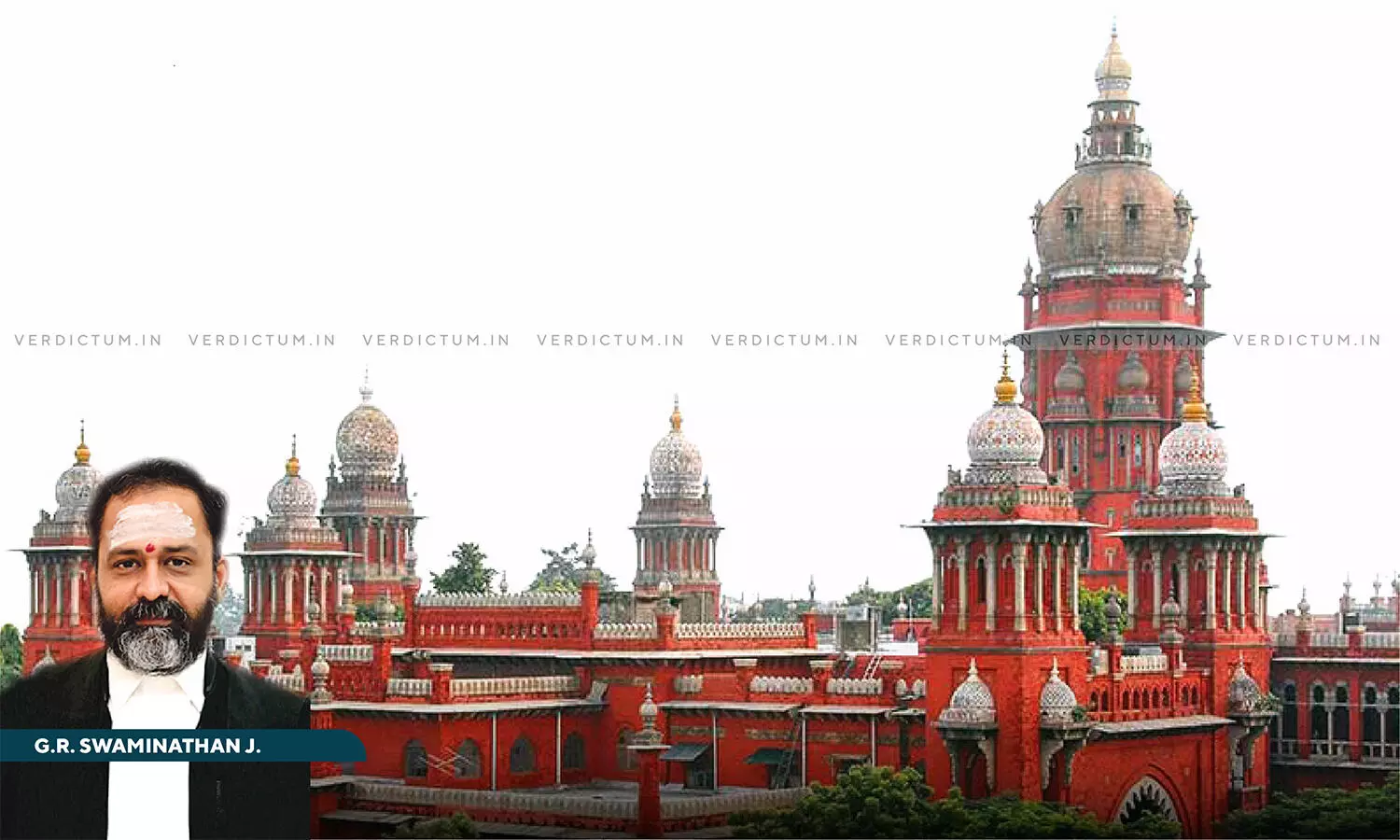
Shariat Council Cannot Issue Dissolution Of Marriage Certificate; Only Courts Duly Constituted By State Can: Madras HC
 |
|The Madras High Court held that the Shariat Council being a private body cannot issue a dissolution of marriage certificate, only courts duly constituted by the State can.
The Court dismissed a petition filed by a husband who challenged the decision of the trial court which upheld the grant of compensation of Rs. 5 lakhs to the wife under Sections 12(1) and (2), 18(a) and (b), 19(a), (b) and (c), 20(1)(d) and 22 of the Protection of Women from Domestic Violence Act, 2005 (DV Act).
A Single Bench of Justice G.R. Swaminathan observed, “I fail to understand as to how the revision petitioner's father could have stood as witness for the pronouncement of talaq before the Shariat Council. There is a saying in Tamil “Velikku Onan Satchi, Vendhadhuku Chockan Satchi”. The chamelion is the witness of the hedge, the cook boy will testify to the food being well boilt. Father being a witness for his son's pronouncement of talaq is akin to this. The certificate issued by the Chief Kazi of the Shariat Council of Tamil Nadu Thowheed Jamath concludes that Shariat judgment is accordingly delivered. Only courts duly constituted by the State can deliver judgments. Shariat Council is a private body and not a court.”
Advocate K.C. Maniyarasu represented the petitioner, while Advocate D. Srinivasa Ragavan appeared for the respondent.
The husband submitted that he had sent a talaq notice to his wife and had married another woman after that. However, the wife claimed that her marriage with the husband was not dissolved and that the third Talaq notice was never received and that during the subsistence of their marriage, the husband remarried.
Noting that in Islam, a wife cannot stop the husband from entering into a second marriage, the Court stated that the wife had the right to seek maintenance and refuse to be a part of the matrimonial household.
“The complainant has been consistently asserting that her marriage with the petitioner is still in subsistence. A mere look at the long cause title of the complaint would show that the complainant had described herself as the wife of the revision petitioner,” the Bench noted.
The Court reiterated the Supreme Court’s decision in Shamim Ara v. State of Uttar Pradesh (2002), wherein it was held, “A mere plea taken in the written statement of a divorce having been pronounced sometime in the past cannot by itself be treated as effectuating talaq on the date of delivery of the copy of the written statement to the wife.”
Consequently, the Court held that, if a wife disputes the validity of talaq pronounced by the husband, the burden is entirely on the husband to satisfy the Court that he pronounced talaq and obtained a judicial declaration that the marriage has been validly dissolved; otherwise, the marriage is deemed to subsist.
“If the husband claims that he had divorced the first wife by properly pronouncing talaq three times, and it is disputed by the wife, the question arises if the marriage has been validly dissolved. The issue cannot be left to the unilateral determination of the husband. That would amount to the husband becoming a judge of his own cause. The only appropriate and legally permissible course would be to call upon the husband to obtain a judicial declaration that the marriage has been validly dissolved. So long as such a declaration has not been obtained from the jurisdictional court, the resultant effect is that the marriage is deemed to subsist. The burden is entirely on the husband to satisfy the Court that he had pronounced the talaq in the manner approved by law,” the Court observed.
Accordingly, the High Court dismissed the petition.
Cause Title: X v. Y